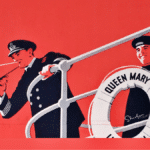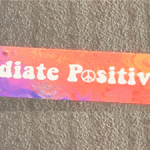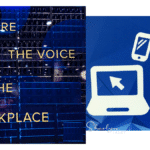I ran across an old post from one of my fave blogs, Flip Chart Fairy Tales, and I wanted to share it with you. It’s about the Zone of Uncomfortable Debate (aka ZOUD).
Simply put, the ZOUD is a place conversations go to question the status quo. It’s uncomfortable discussion. It might be perceived as conflict or combative. People might become defensive. In the post on Flip Chart Fairy Tales, Rick discusses how long a person / team can effectively operate in the ZOUD. It’s a really good read.
As individuals, we need to get comfortable with challenging conversation. We all know this isn’t one of our favorite things to do. We want everyone to get along. But sometimes we need to have moments of uncomfortable debate to ultimately take us to a better place.
It reminds me of these business turnaround shows that are really popular right now. You know, like Restaurant Impossible or Hotel Impossible and there’s another one called Restaurant Stakeout. The business is going along…there are all these things that are wrong…and no one wants to talk about it. Absolutely no accountability. Then someone comes in and starts asking questions.
Frankly, they’re not hard questions. But they’re uncomfortable. People have to either step up and justify their actions or they need to admit that they’ve been slacking. And no one likes being in that position. After evaluation, discussion and some tense moments, the business ends up fixing things and moving in a more positive direction.
Yes, I do realize that this is reality television (don’t judge). But you can see its application to real organizational challenges. A company has one of those “elephant in the room” problems. Everyone knows it exists but no one is willing to take it on. The employees snicker about it in the break room. If the group was willing to enter the ZOUD, is it possible that the problem could get fixed?
And if they weren’t able to manage the ZOUD on their own, would they be able to recognize that and bring in some expertise to help them manage the process? Salvation via facilitation.
Ultimately, a key skill for teams is being able to work through business challenges even when it’s uncomfortable for individuals. This means individuals must put the needs of the team and solving challenges above their own. I wonder how many organizations look for that attribute in the hiring process. Hmmm…
Image courtesy of Nancy Newell [Simutis]
4








Ernesto Tamayo says
Hi Sharlyn! I couldnt agree more with your article…communication is essential, in any relationship, for that relationship to thrive. The same applies to businesses…leaders who communicate effectively are a catalyst for success.
Ernesto
Ofra says
Reading about Zones of Uncomfortable Debate, I thought of a book I just read: Fierce Conversations by Susan Scott. http://www.fierceinc.com/conversations/ (we discussed it in a women’s business book club I am a part of). The book talks about the “ground truth” of a company as opposed to the “company truth”. Maybe another diminution of these ZOUDs…
Susan calls out 7 principles of having these fierce conversations the help align the two truths:
⁃ Master the courage to interrogate reality.
⁃ Come out from behind yourself into the conversation and make it real.
⁃ Be here, be prepared to be nowhere else.
⁃ Tackle your toughest challenge today.
⁃ Obey your instincts.
⁃ Take responsibility for your emotional wake.
⁃ Let silence do the heavy lifting.
Conversations at work are indeed a very important (and interesting) topic… thanks.
Mallory H says
Hey Sharlyn!
I completely agree with this article. A business can prosper and grow if they occasionally have an “uncomfortable debate.” I have often seen in organizations and businesses that there have been visible issues such as communication problems or recruitment and selection issues. There comes a time that it is important to deal with the visible issue even though everyone is beating around the bush.
It is important that when an uncomfortable debate occurs for those involved to keep an open mind and to develop a solution to help the issue. It is important to get down to the problem and be a catalyst for change.
I am interning at viasto which has created an interviewing suite. The interview suite was created because there are so many issues with recruiting processes and the interview suite could be a solution to an uncomfortable debate about recruiting issues.
Mallory
http://www.viasto.com
John says
Hi Sharlyn – loved reading your blog about the ZOUD. It was following one of our presentations that the original flip chart fairy tales blog was written. My co-author, Ian Day, and I use the concept of the ZOUD in our book ‘Challenging Coaching’ where we outline five core skills that are necessary to enter the ZOUD effectively:-
F – Feedback
A – Accountability
C – Courageous Goal Setting
T – Tension
S – Systems Thinking
Together, we call it being able to face the FACTS. Susan Scott’s ‘Fierce Conversations’ book was one of the inspirations for our work particularly her principle of ‘Master the courage to interrogate reality’. But it is not just about coaches we all need to challenge the denial that is holding us back from the next stage of our development. I recently wrote this blog on the topic which you might be interested in – http://www.trainingzone.co.uk/topic/coaching/challenging-coaching-pt4-zone-uncomfortable-debate-zoud/176341
Sharlyn Lauby says
Thanks for the great comments!
Love the reference Ofra made to silence. It’s such a powerful tool. People really need to learn how to become comfortable with it.
Mallory brings up a good point about keeping an open mind. I’ve seen way too many situations where the debate is perceived as being “personal” – which keeps people from opening up and saying what’s on their mind.
And many thanks John for sharing his latest on the subject.
John@PGISelfDirected says
Communication is in some ways like a dance; each partner plays off the other, basing his or her steps on the other person’s, while simultaneously maintaining a certain amount of individuality. What do you think?
John says
John – I agree communication is a dance, sometimes we step back, sometimes we step forward. There is a dynamic tension in the best dancing partners and a sense of equality and collaboration which relies upon both expressing themselves fully yet in rhythm with each other. An unhealthy challenge is where you step on someone’s toes without intending to and without them expecting you to. A healthy challenge is where you place them momentarily off balance trusting that they will respond, regain their balance and learn from the experience.
John Blakey
http://www.challengingcoaching.co.uk
Mathew says
Insightful post, and thank you for sharing the link! Indeed these conversations can be especially difficult. I think if more and more employees (and employers) can self-evaluate on a regular basis, organizations can work to avoid these conversations.
(I wrote up a piece which makes reference to this post, feel free to check it out at my Website link).
Sharlyn Lauby says
Thanks for the mention Mathew!